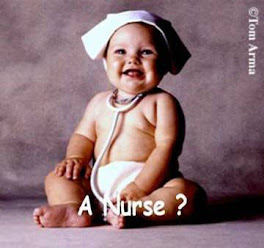
Dr. Berman…faculty, family & friends.. my fellow colleagues.…The journey that began 11 and a half months ago is now coming to an end.
We told you last January we would see you on the other side of this…and you bore it all so patiently.
How fitting that Dr. MacIntyre welcomed you all to our pinning ceremony, because in many respects, he took this extraordinary journey with the ABSN class from start to finish, Our work with him, from January through December was an examination of conscience & intellect for the rest of our practical nursing curriculum, providing the framework by which we learned about nursing standards, scope of practice, ethics, application of applied research and evidence-based practice.
The most important contribution he made to our cohort, however, was the assignment of a book in November that for all intent and purpose is a book written about us, a book about him…and about some of the very special patients we had this year….The title of the book is “Outliers, The Story of Success” by Washington Post business & science reporter and author Malcolm Gladwell. If you have not read this book, you should.
Outliers are a misunderstood, unique subset of people who fail to fall within in the normal bell curve in standard statistics. They are so far outside the bell curve that when taken into consideration, it is difficult to understand them. They fail to behave the way one would expect, their results are often unanticipated, it is difficult to make predictions about them. Outliers cannot be put “into a box” because their outcomes fall outside the veil of normal experience and expectation.
Our cohort cuts across four different decades, from backgrounds as diverse as photography & psychology to biochemistry and the neuro-biosciences. Our class has civil and electrical engineers, physical therapists, social workers and exercise physiologists. We have a professional homeopathic doctor, an Eastern medicine practitioner, and a theologian. We are a class of educators, writers, and business administrators. In addition, we have a professional musician and a seasoned television news reporter who climbs mountains in her spare time. Several of our classmates plan to be nurse anesthetists and family nurse practitioners and one is planning to go to medical school.
These individuals at this particular point in time decided to become baccalaureate prepared professional nurses. They answered a vocational call to the nursing profession and committed to the intensity of an accelerated bachelor’s program. Who does that? … And arrives on this stage… December 10, 2009 after 11 and one half months?
That would be the Outliers.
Gladwell theorizes that outliers are surrounded by people that allow them to thrive and be successful. People, who happen to be very special family and friends. Wedged into their background is a broad life experience, and additional outliers who are their mentors and teachers and in many respects, nothing but Providence is responsible for this.
Therefore, let our charge be, in our future practice to watch carefully and diligently, for our patients who are also outliers, in order that we might apply our best practice, because no matter what we read in nursing textbooks, in nursing research…No matter what we hear in report, on rounds….or read in a patient’s chart, as nurses who are outliers, we must rely on our other tools and skills, our intuition, our five senses, our own assessments, listening tentatively when we’d rather not, looking for the outlier who defies the odds, rebounds when we least expect it or needs us to advocate for them when no one else will answer the call.
Outliers apply knowledge from a variety of resources to treat patients across the life span because of broad based experience and will go that extra mile…. because somewhere in their past, outliers have had their own obstacles, special challenges, problems to solve and yes, their own suffering to endure.
We banded together as I believe Dr. MacIntyre wanted us to, in order to effect change in the nursing profession …this class not only adopted each other as family; we adopted patients with the highest acuity, the homeless, the dispossessed, the young, the ones left alone to die, and the undesired who desperately needed to be bathed. This class tended after the wounded, the abused, and the burned. We cared for the ones with cancer and the wee ones just born.
This is the story of the success of this cohort who successfully navigated the ABSN program somewhere on the outskirts of the bell curve.
Congratulations to the Samuel Merritt University ABSN Class of 2009.































